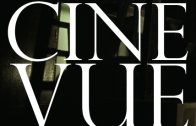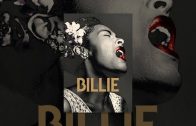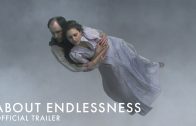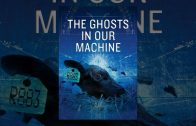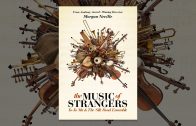In last year’s top ten list, we remarked on how streaming had “truly arrived” as a contender to traditional cinema exhibition. We had known for some time that cinema was experiencing a paradigm shift, but we couldn’t possibly have known just how profoundly and rapidly it would change in the following twelve months.
And what a long twelves months it has been. As low-paid, precariously-employed cinema workers have faced even greater hardship on furlough or redundancy, cinephiles lament the end of the theatrical experience, and the rest are caught between supporting struggling cinemas and acting responsibly in the midst of a health crisis.
If there is a silver lining to be had among these dreary clouds, it’s that for once we have had a year in cinema not dominated by studio tentpoles. Christopher Nolan’s Tenet was the notable exception to a slate of blockbusters that found themselves postponed to 2021 or shifted to streaming services.
The space they have left has given distributors, filmmakers and audiences room to explore more than the annual round of sequels and reboots, even if that space has been our living rooms. In what other year would we have been treated to five (five!) Steve McQueen films – three of which made our top twenty – or a straight-to-streaming genre film that catches the zeitgeist as precisely as Rob Savage’s Host?
These examples, and the list below, are reasons to hope: filmmakers will continue to find innovative ways to make films; film-lovers will continue to find them. Perhaps this reboot of the way we engage with cinema will even herald a greater diversity of film and filmmaker in both the arthouse and the mainstream. As lovers of cinema, let’s make sure that we continue to support it.
N.B. As ever, only entries that had their world premiere this year were eligible for our FOTY list.
10. I’m Thinking of Ending Things (dir. Charlie Kaufman)
The film’s title is a pondering refrain, repeated throughout whilst she ruminates on the pros and cons, but could the ‘ending’ of which Jessie Buckley’s character speaks be something altogether more serious, and final? I’m Thinking of Ending Things is far more than a will-they, won’t-they, let’s-embarrass-the-son-in-front-of-his-parents couples dramedy, and the quirky comedic elements which litter most of Kaufman’s writings are almost entirely absent here. It is a considerably more sinister, cynical work which becomes increasingly claustrophobic as the metaphysical walls close in. Read the full review. Matthew Anderson
9. Host (dir. Rob Savage)
Online horror platform Shudder has proven something of a hit in 2020. As well as making loads of classic movies available to stream, they’ve produced one of the year’s most inventive and ultra-timely features, Host, a lockdown séance film shot almost entirely over Zoom. Taut and imaginative, this widely and justly celebrated found-footage ghost story is just under an hour of smart characterisation, formal ingenuity, and surprisingly effective scares. Perhaps its greatest asset, however, is the clever use of technology – laptop cameras, smartphone filters, background loops – which transcends gimmickry to provide several of this year’s most creepily original moments. Read the full review. Thomas Alexander
8. The Forty-Year-Old Version (dir. Radha Blank)
Who said modern comedies look boring? Radha Blank’s black and white, semi-autobiographical Forty-Year-Old Version is as luminous and vital as they come. Channelling Woody Allen’s 1970s oeuvre as well as Spike Lee’s She’s Gotta Have It, Blank’s study of the contemporary New York theatre scene is as moving as it is brilliantly witty and self-effacing. On race and the politics of selling out, Blank is as scathing as she is pragmatic; her moral and artistic victories are triumphant. Christopher Machell
=6. Nomadland (dir. Chloé Zhao)
Nomadland’s poetic realism is heightened by Joshua James Richards’ stunning cinematography and production design providing a vitality in the desert with its temporary inhabitants: searing scenes of natural beauty contrasting with the mundanity of factory work. Never patronising and avoiding polemic, Zhao tactfully manages to explore the world of the low paid and homeless, whilst offering compassionate insight into the lives of the people who make up our service economy. Nomadland, with its beautiful simplicity and wonderful performances, manages to be an elegant, profoundly moving film which shows the real value of living, rather than just surviving. Read the full review. Zoe Margolis
=6. Shirley (dir. Josephine Decker)
Not one to play to type or genre, Decker has crafted a delirious, off-kilter, wickedly dark biopic where, perhaps, lifting the lid, or rather peering tentatively into the mind, of the subject is not the principal objective. But rather this is a much broader examination of the creative process, of obsession, jealousy, paranoia – and the toll these all take on a high-functioning, but troubled psyche. Though the slow, blurry-edged stupor of Shirley will not be to everyone’s tastes, it cannot be denied that it examines its subject with feverish, dreamlike fluidity rather than rigid biography. That, and Moss’ enthralling lead performance, are Shirley’s chief accomplishments. Read the full review. MA
5. Never Rarely Sometimes Always (dir. Eliza Hittman)
To call the film understated is itself almost an understatement. Never Rarely Sometimes Always wears its lo-fi indie credentials front and centre, finding a realism in the two taciturn teenagers that feels largely authentic. At times, it’s hard not to wonder if a little more dialogue, a little more development of Autumn’s character or her relationships wouldn’t have provided some needed depth to the overall story. Yet, since this is a film determined not to sensationalise, desperate to show the everyday quality of what its two girls have to go through, it’s also an editorial decision that gives back what it takes away. Tom Duggins
4. Da 5 Bloods (dir. Spike Lee)
In the context of the #BlackLivesMatter protests, Da 5 Bloods feels at once astonishingly prescient and nuanced, weaving together the national trauma of the war that America never got over with the contemporary rot of modern US society. The film’s broad strokes of comedy – in the first act at least – play like a dad-bod rendition of Treasure of the Sierra Madre. Yet beneath the quartet’s half-cut reminiscing lies a tremendous, dormant pain – no more so realised than in Delroy Lindo’s feverish performance as the MAGA hat-wearing Paul.
As Paul’s PTSD-induced psychosis grips him in the third act, the expansion of the frame up and out is as if the past and the present have been fused together; the apparent psychological contradiction of his support for Trump as a black veteran is at last resolved through the exhumation of long-denied trauma. Read the full review. CM
3. Mangrove (dir. Steve McQueen)
Taking a sledgehammer to institutionalised racism with the clarity of purpose and skill of a master craftsman, Steve McQueen is once again at the very top of his game, and indeed his profession, with Mangrove. Constituting just one instalment of the five-part Small Axe series, this film is a towering achievement.
From its opening frames, the film’s rich, tangible aesthetic is one that we want to reach out and touch, to immerse ourselves in. Shot on 35mm film by Shabier Kirchner – who worked on each of the Small Axe projects in various mediums – Mangrove’s granular visual texture is reinforced by Lisa Duncan’s excellent period costumes (turtlenecks and leather jackets-a-plenty) and Helen Scott’s stellar work on the production design. Read the full review. MA
2. Possessor (dir. Brandon Cronenberg)
Possessor’s premise will be familiar both to genre fans and mainstream audiences. The Matrix, Inception and to a lesser extent, the Blade Runner films have obvious narrative similarities, but the legendary R.W. Fassbinder’s brief dalliance with sci fi – World on a Wire – is a far closer approximation of the aesthetic and overall tone of Possessor. But it’s Brandon’s dad’s eXistenZ that is surely the most important – and potent – ingredient in Cronenberg Jr.’s cinematic broth.
It’s a heady mixture of genre and arthouse, and pays dividends. The cold-war greys and brutalist surfaces of the interior locations are at constant odds with their fleshy occupants, while Cronenberg’s near-ubiquitous use of shots in close up with long lenses flatten out cavernous space and elicit a subcutaneous sense of paranoia and surveillance. Read the full review. CM
1. Lovers Rock (dir. Steve McQueen)
Steve McQueen’s Small Axe anthology has been the most exciting and politically engaged piece of television since Alan Bleasdale’s Boys from the Blackstuff. Lovers Rock is the beating heart of the piece. An immersive and sexy recreation of a West London house party in the eighties, where the music genre that gives the film its title – a romantic sex-driven form of reggae – soaks through the walls and intoxicates the dancers and the night. There are shadows lurking – sexual predation, racism, disapproving parents – but when the music just takes you, don’t play silly games. Just go with it. Read the full review. John Bleasdale
Honourable mentions
11. Wolfwalkers (dir. Tomm Moore, Ross Stewart)
12. Red, White and Blue (dir. Steve McQueen)
=13. After Love (dir. Aleem Khan)
=13. Boys State (dir. Amanda McBain, Jesse Moss)
=13. Collective (dir. Alexander Nanau)
=13. His House (dir. Remi Weekes)
=13. The Invisible Man (dir. Leigh Whannell)
=18. Bloody Nose, Empty Pockets (dirs. Bill Ross IV, Turner Ross)
=18. Disclosure (dir. Sam Feder)
=18. The Fight (dir. Eli B. Depres, Josh Kriegman, Elyse Steinberg)
=18. Mank (dir. David Fincher)
=18. The Painter and the Thief (dir. Benjamin Ree)
=18. Tenet (dir. Christopher Nolan)
24. Time (dir. Garrett Bradley)
25. Dick Johnson Is Dead (dir. Kirsten Johnson)
